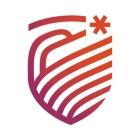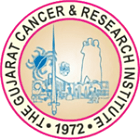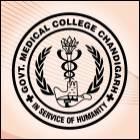- Home
- Courses
- Predictors
- Packages
- About
- Login
- Contact
- Near NRR Hospital, Thammenahalli Village, Bengaluru, Karnataka 560 090
- +91 8904151144
- cgmanagement00@gmail.com
Content Writer: Shubham S Nimje
Published on: Tue Jan 09 2024Updated on: Tue Jan 09 2024
Introduction: Bachelor of Siddha Medicine and Surgery (BSMS) stands as a revered discipline in traditional medicine, centered on Siddha principles. This comprehensive guide aims to illuminate the essence of BSMS, encompassing educational insights, admission procedures, top colleges, career prospects, and more.
BSMS stands for Bachelor of Siddha Medicine and Surgery, an undergraduate program that acquaints students with Siddha medicine principles, diagnostics, and therapeutic methodologies.
Candidates seeking admission to BSMS programs typically require a 10+2 qualification with Physics, Chemistry, Biology, and English as compulsory subjects. Specific eligibility criteria may vary across institutions.
Entrance exams such as NEET (National Eligibility cum Entrance Test), state-level medical entrance exams, or specific Siddha medicine entrance tests serve as entry points for BSMS programs in India.
The BSMS curriculum encompasses subjects like Maruthuvam (Medicine), Gunapadam (Pharmacology), Sirappu Maruthuvam (Special Medicine), and Yoga, among others, focusing on Siddha principles and treatments.
Renowned institutions offering BSMS programs include Tamil Nadu Dr. M.G.R. Medical University, Government Siddha Medical College, and National Institute of Siddha, among others.
BSMS graduates can contribute to holistic healthcare, research in traditional medicine, pharmaceutical industries, academia, and play a vital role in promoting Siddha medicine.
Graduates of BSMS can work as Siddha medical practitioners, researchers, lecturers, healthcare consultants, or start their Siddha clinics.
Government healthcare departments, private clinics, pharmaceutical companies, Siddha hospitals, and educational institutions are potential recruiters for BSMS graduates.
BSMS programs may cover Varma therapy, a traditional Siddha therapy involving the manipulation of vital points (Varma points) to stimulate healing and restore energy flow.
Students learn about Panchakarma therapies, including Vamana (emesis), Virechana (purgation), Basti (enema), Nasya (nasal therapy), and Raktamokshana (bloodletting) for detoxification and rejuvenation.
BSMS curriculum includes Siddha treatment modalities for managing skin conditions like eczema, psoriasis, acne, and vitiligo using herbal remedies and external therapies.
Students explore Siddha beauty therapies using herbal formulations and natural ingredients for skincare, promoting wellness and aesthetics.
BSMS graduates contribute to Siddha drug development, researching and formulating new herbal medicines for various health conditions based on traditional knowledge and modern research.
Siddha practitioners engage in clinical trials, validating Siddha treatments, and conducting evidence-based studies to establish the efficacy of traditional remedies.
BSMS professionals collaborate with allopathic practitioners, integrating Siddha medicine with modern medical approaches for comprehensive patient care.
Siddha practitioners offer lifestyle counseling, incorporating dietary advice, yoga, and meditation for holistic well-being and disease prevention.
BSMS includes training in Siddha approaches to address age-related health issues, promoting healthy aging, and enhancing the quality of life for the elderly.
Siddha medicine provides holistic management strategies for chronic conditions prevalent in older adults, emphasizing personalized care and wellness.
BSMS graduates participate in workshops and seminars focusing on specialized areas like Siddha psychiatry, pediatric care, or geriatric medicine for skill enhancement.
Siddha practitioners engage in international collaborations, contributing to research initiatives, exchange programs, and global healthcare initiatives in traditional medicine.
BSMS professionals actively participate in community health programs, offering Siddha healthcare access, health education, and preventive measures in underserved areas.
Siddha practitioners advocate for the recognition and inclusion of traditional medicine systems in national healthcare policies and public health programs.
A: BSMS graduates are trained in Siddha medicine and are legally allowed to practice Siddha medicine. However, practicing allopathic medicine without appropriate licensing is not permitted.
A: BSMS graduates can work as Siddha practitioners, researchers, lecturers, healthcare consultants, or pursue higher studies in specialized areas of Siddha medicine.
A: BSMS degrees from recognized institutions hold credibility globally, allowing graduates to practice or pursue further studies in countries that recognize traditional medicine systems.





Copyright © 2023 Career Guidance Management
Design and Developed by CGM